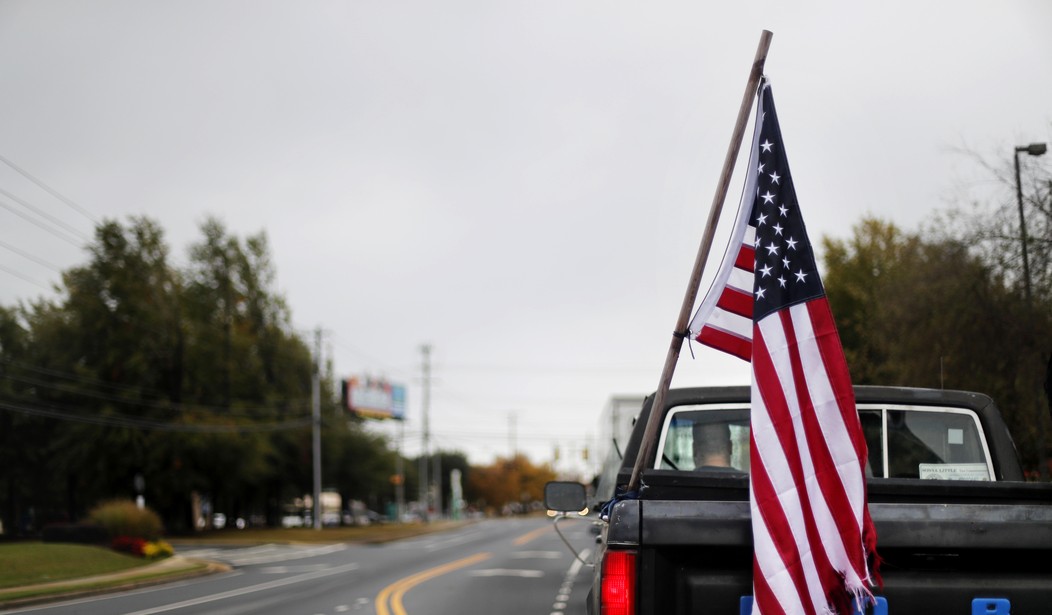Language is being redefined without any apology or shame, and one example is the term “Christian nationalism.” Adversaries are using that phrase to paint Christians as threats, suggesting that we are the root or the seeds of violence. It’s a very destructive and unfair accusation. It’s important to understand “Christian nationalism,” and how it’s being discussed and politicized, so we can navigate what’s ahead of us.
When I talk about “Christian nationalism,” I'm referring to people who have a love for their country more than their love for God. That’s a dangerous position because if you put your country (or anything) ahead of your love for God, you'll use faith and Scripture to manipulate whatever circumstance you see and baptize your actions in the name of Almighty God. History is filled with those terrible stories.
Unfortunately, when “Christian nationalism” is used in the public sphere by people who don’t like evangelical Christians, my definition is not usually the one that's applied. A national media outlet recently published: “Christian nationalists are those people who believe that the United States was founded as a Christian nation; that the founding fathers were all orthodox, evangelical Christians; and that God has chosen the U.S. for a special role in history.” I’d like to unpack this definition a bit.
First, I believe our nation was founded as a Christian nation, but not a uniquely Christian nation—you can believe many things and be a citizen of the United States. So, when we say we have a Christian nation, we’re not saying that the United States has been an only-Christian nation or the state imposed Christianity upon us. But if you step back from it just a bit, it’s obvious we weren’t a Buddhist, Islamic, or agnostic nation. When our founders wrote the Declaration of Independence, they put their faith on paper when they said, “we hold these truths to be self-evident, that all men are created equal, that they are endowed by their Creator with certain unalienable Rights.”
Recommended
Were the founders of our nation universally evangelical Christians? Of course not. The pastors in my city today are not uniformly evangelical Christians. But it’s clear our founders recognized the authority of God in our natural order, that God is our Creator and human beings are a result of that creation.
I do believe the third part of that national media outlet’s statement—that we were chosen for a special role in history—but I would believe that of any nation where God planted me as a citizen. God gives a purpose to our lives that’s beyond ourselves, and that has to fit into God’s divine plan for the nations. Our purpose is directly tied to where God places us on the earth.
It’s not wrong, unscriptural, or immoral to be a patriot. It's not wrong to want our country to flourish. I do think it is wrong to want to diminish our nation, giving others a greater opportunity. It’s also wrong to hate your country and then take the benefits that were earned by the sacrifices of others. Our country will only flourish if we believe it's worth sacrificing for.
I think one of the reasons those statements are objectionable to those who don't embrace our faith is they're a very unifying set of principles. If you believe there is a God, and that He created our nation with a purpose, it galvanizes us—not to violence, anger, criticism, nor condemnation—but to submit ourselves to God.
We don’t need a favorable election for the purposes of God to move forward. God doesn't save us because we have a 51% majority. God saves us because of the condition of the hearts of His people. If we intentionally draw close to God and work to strengthen the foundations of our own personal faith—repenting, forgiving, praying, and following His Spirit wherever and however He leads—God will use us to be the difference-makers our nation needs. That’s what I talk about in greater depth in my new book, Big Trouble Ahead.
Christ-followers are not here to advocate for candidates or parties. We’re here to advocate for a biblically informed perspective on the world. Any time we put something in front of that—whether it’s a love for our nation, our State, our gender, or when you hyphenate your faith—it becomes idolatry. We must have the clarity to understand what it means to love God first, and to never be confused on that point. We lead with Jesus.
Allen Jackson is senior pastor of World Outreach Church, a congregation of 15,000, and founder of Allen Jackson Ministries, which broadcasts his biblical messages across the world on TV, radio, and the internet. He is the author of God Bless America Again and Intentional Faith, and his new book, “Big Trouble Ahead,” releases from Thomas Nelson Aug. 16.

























Join the conversation as a VIP Member